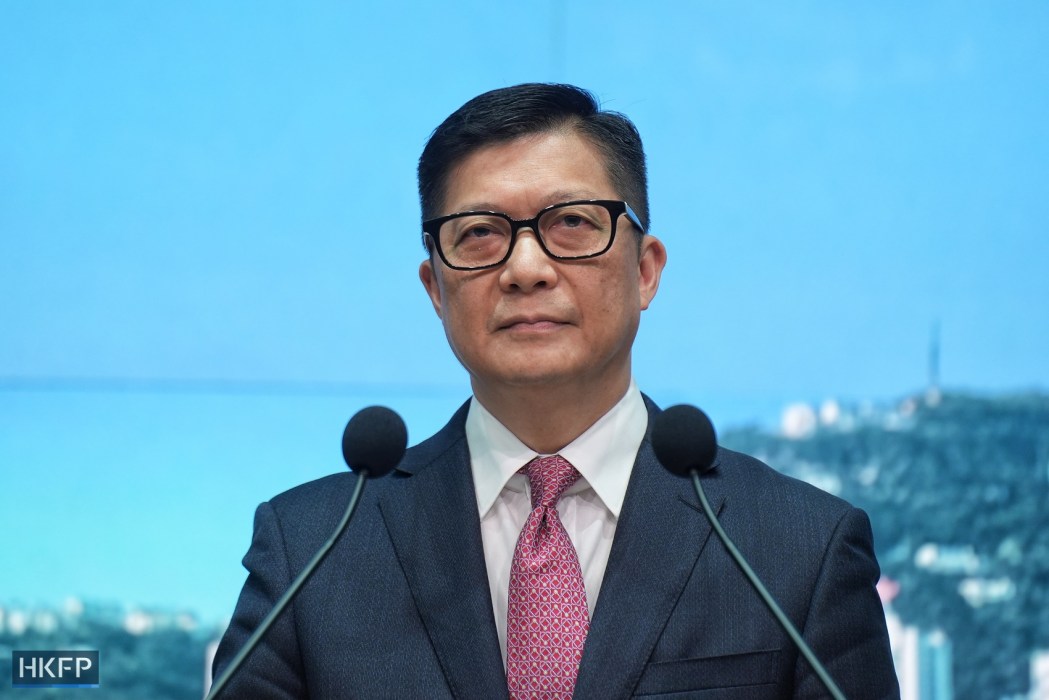Hong Kong’s security chief has said that rights and freedoms will be protected after the local Article 23 security law is enacted next year, echoing assurances previously given about the 2020 national security law.

Chris Tang said on Sunday that only a few who endanger national security will be affected, and Article 23 will otherwise have no impact on daily life, businesses or journalists’ work.
See also: How 3 years of the national security law transformed Hong Kong
Article 23 of the Basic Law stipulates that the government shall enact laws on its own to prohibit acts of treason, secession, sedition and subversion against Beijing. Its legislation failed in 2003 following mass protests and it remained taboo until after the onset of the separate, Beijing-imposed security law in 2020. Pro-democracy advocates fear it could have a negative effect on civil liberties but the authorities say there is a constitutional duty to ratify it.
“No matter whether it is the national security law, or the upcoming Article 23 legislation, we will definitely safeguard people’s freedom of speech in accordance with the International Covenant on Civil and Political Rights or other international covenants,” Tang said in Cantonese on Commercial Radio according to RTHK.

See also: Explainer: What is Article 23?
“Actually, countries around the world have their own national security legislation, so why always target Article 23 in Hong Kong? This is not fair because all societies have these kind of laws,” he said, adding that the legislation would not be applied retroactively.
Tang’s comments come five months after the justice minister Paul Lam claimed that the existing security law had not impacted free assembly, despite UN criticism.
See also: Five ways Hong Kong has changed under China’s security law
Beijing inserted national security legislation directly into Hong Kong’s mini-constitution in June 2020 following a year of pro-democracy protests and unrest. It criminalised subversion, secession, collusion with foreign forces and terrorist acts – broadly defined to include disruption to transport and other infrastructure. The move gave police sweeping new powers and led to hundreds of arrests amid new legal precedents, while dozens of civil society groups disappeared. The authorities say it restored stability and peace to the city, rejecting criticism from trade partners, the UN and NGOs.
Support HKFP | Policies & Ethics | Error/typo? | Contact Us | Newsletter | Transparency & Annual Report | Apps
Help safeguard press freedom & keep HKFP free for all readers by supporting our team
























